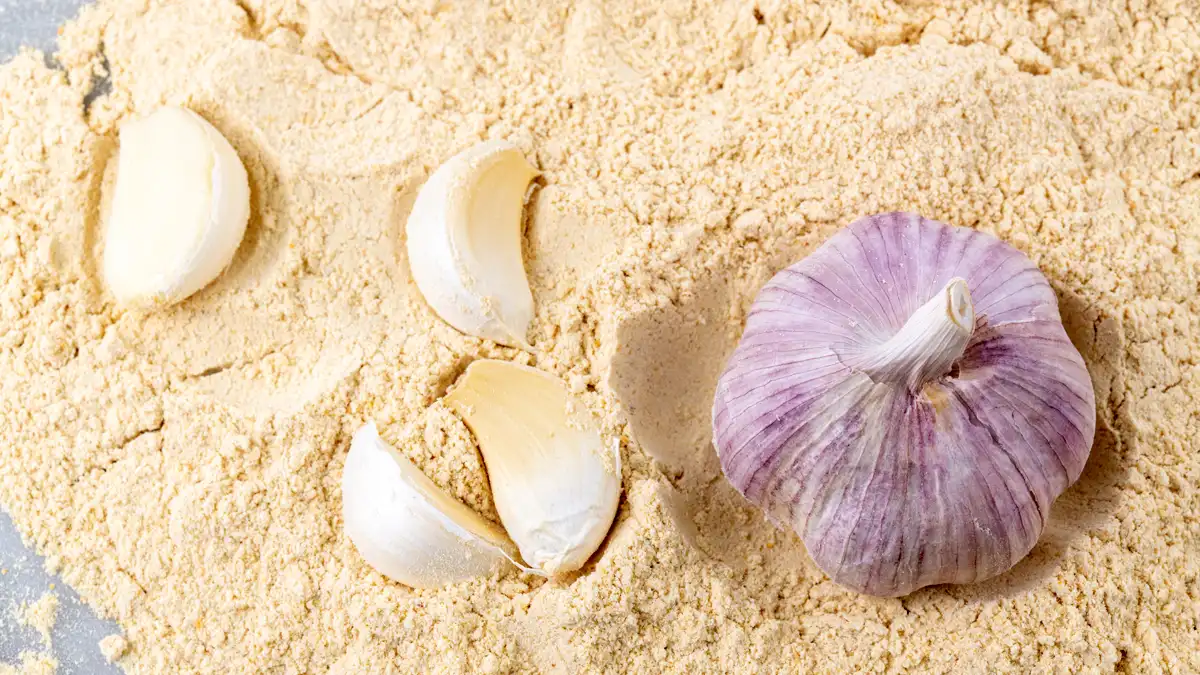 To enhance the productivity and attain the growth promotion potential of the poultry industry in the country, aqueous garlic extract has been identified as an alternative to antibiotics in promoting growth in broiler chickens.
To enhance the productivity and attain the growth promotion potential of the poultry industry in the country, aqueous garlic extract has been identified as an alternative to antibiotics in promoting growth in broiler chickens.
This innovation was the main research focus presented at the recent Institute of Food Security, Environmental Resources and Agricultural Research (IFSERAR) Monthly Seminar for August 2024, which revealed that hot extraction methods significantly improve key haematological parameters, suggesting enhanced oxygen transport and better erythropoiesis.
Garlic is the king of the medicinal plants which have growth promoting effect in chicken production. It has antibacterial, antiviral, antifungal and antiprotozoal properties. Moreover, it boosts the immune system, improves the body weight gain, heighten the digestibility of ingredients, decrease the bad cholesterol, and also augment the meat quality parameters.
While Presenting the topic: “Response of Chickens to Organic Growth Promoters as Alternatives to Antibiotics,” Dr. Fatai Adewole investigated the effects of garlic extraction methods, dosages, and administration frequency on broiler chicken growth performance, carcass characteristics, and haematological parameters.
According to researchers, this antibiotic growth promoters have been extensively used in the poultry feed to improve weight gain, feed efficiency, lessen the number of harmful bacteria, and enhance immunity and other benefits for sustainable poultry farming.
Additionally, Adewole said the hot extraction method increases dressed weight, indicating promoted muscle growth and reduced non-edible parts.
The study also found that optimal garlic dosage and administration frequency were crucial in balancing growth performance, feed efficiency, and bird health.
The 15 per cent garlic group showed reduced mortality and improved final weight, while the five garlic group had the highest feed consumption.
The seminar concluded that hot extraction methods and optimised garlic dosage and administration frequency could be used as effective organic growth promoters in broiler chicken production, reducing the need for antibiotics.
He revealed that breakthrough research has significant implications for the poultry industry, promoting sustainable and healthy farming practices.
However, experts claimed that they have role in development of the resistance in the pathogenic bacteria and impose negative impact on the consumers due to residues, suggesting that medicinal plants are the best replacement option of antibiotic growth promoters.
Earlier, the Director, IFSERAR, Prof. Alaba Jolaosho, who welcomed participants to the seminar, underscored the significance of such seminars in advancing agricultural research and innovation.
Prof. Jolaosho highlighted that such gatherings provide a crucial platform for researchers, practitioners, and students to exchange knowledge, share ground breaking ideas, and collaborate on solutions that address the pressing challenges in agriculture and food security.






